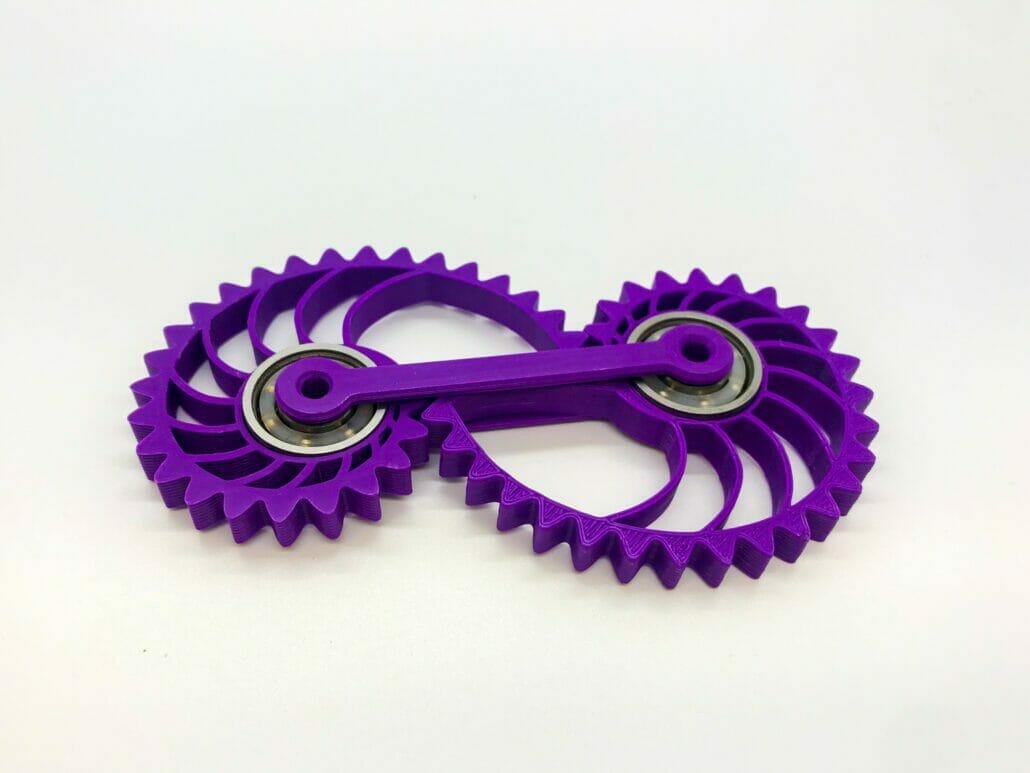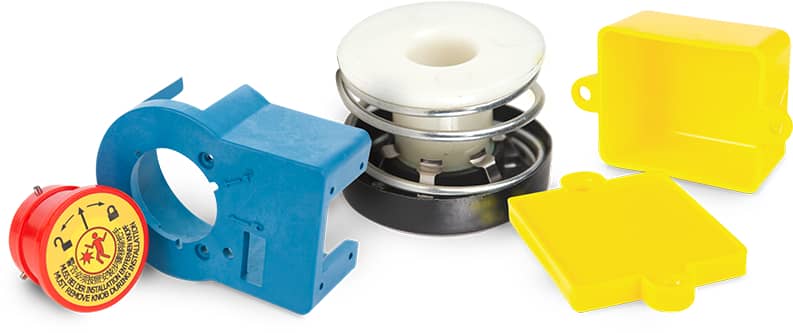Delrin—a trademarked name for a type of acetal resin—is a favorite among engineers and manufacturers for its impressive blend of strength, precision, and versatility. In this comprehensive guide, we dive deep into Delrin material properties and explore why this engineered plastic is a top choice for high-performance, precision applications. Whether you’re designing complex plastic components or simply curious about the capabilities of Delrin, understanding its properties is key to successful application in any project.
At Jaco Products, our state-of-the-art CNC (computer numerical control) machining and injection molding services are perfectly suited to harness the unique qualities of Delrin. Read on to learn about its mechanical strength, machining tolerances, temperature performance, electrical insulation capabilities, and overall machinability.
Delrin Mechanical Properties
Before looking at the mechanical properties of Delrin, it is important to point out the difference between this product and acetal. An advantage of Delrin is its better resistance to impact and low friction. Acetal, on the other hand, excels in chemical resistance and maintains good structural stability due to its crystalline structure. Delrin is renowned for its outstanding mechanical performance, making it a prime choice for components that must endure repetitive stress and harsh conditions. Here are some key mechanical attributes:
- High Tensile Strength: Delrin offers impressive tensile strength, often ranging between 6,000 to 22,000 psi. This ensures that parts made from Delrin can withstand significant loads without deforming.
- Excellent Stiffness: With a high modulus of elasticity, Delrin maintains its shape and dimensional stability under stress, which is crucial for precision components.
- Wear Resistance: Its low friction coefficient and excellent wear properties make Delrin ideal for moving parts, gears, and bearings.
- Impact Resistance: Delrin’s resilience under impact means it can absorb shocks and resist cracking, ensuring long-term durability even in demanding environments.

Delrin Machining Tolerances
When precision matters, the ability to machine a material within tight tolerances is critical. Delrin stands out in this regard:
- Tight Tolerance Capabilities: Delrin’s uniform structure and low internal stress allow for tight machining tolerances—often within ±0.001 inches. This is essential for parts that require exact dimensions and minimal deviation.
- Advanced CNC Machining: At Jaco Products, our 5-axis CNC machining systems are optimized for processing Delrin. These advanced machines can produce intricate parts with high precision, ensuring that every cut and contour meets exacting standards.
- Reduced Post-Processing: Because Delrin machines cleanly, additional finishing work is often minimized. This not only reduces production time but also helps maintain the integrity of the material.

Delrin Material Temperature Range
Understanding the thermal performance of Delrin is crucial for applications exposed to varying temperatures:
- Operating Temperature Limits: Delrin typically performs well in a continuous service temperature range from (approximately -40°C to 90°C). Within this range, its mechanical properties remain stable.
- Thermal Stability: Although Delrin’s strength is optimized for moderate temperatures, it does exhibit some thermal expansion. Engineers must account for this when designing parts that require high precision over a wide temperature range.
- Short-Term Thermal Spikes: For applications that may encounter brief thermal spikes, Delrin’s resilience ensures that it can handle temporary surges without significant loss of performance.
Delrin Electrical Properties
In addition to its mechanical and thermal strengths, Delrin offers reliable electrical performance:
- Excellent Insulation: Delrin is a good electrical insulator, which makes it suitable for components in the electronics and electrical industries.
- Low Moisture Absorption: Its low moisture absorption rate helps maintain consistent electrical properties, even in humid environments.
- Dielectric Properties: The inherent dielectric strength of Delrin ensures that it can safely be used in applications requiring electrical insulation, such as connectors, circuit breakers, and various housings.
Delrin Machining Properties
Delrin’s overall machinability is one of the key factors behind its popularity:
- Ease of Machining: Thanks to its uniform composition and low friction characteristics, Delrin is one of the easiest plastics to machine. It cuts cleanly, reducing the risk of burrs and uneven surfaces.
- High Dimensional Stability: During machining, Delrin maintains its shape and dimension, which is critical for high-precision parts. Its low thermal expansion further aids in keeping tight tolerances intact.
- Surface Finish: Delrin naturally produces a smooth surface finish when machined, minimizing the need for additional post-processing steps like sanding or polishing.
- Versatility in Design: Whether you’re machining intricate designs or large, robust components, Delrin’s consistent properties allow for flexibility in design and function.
Advanced CNC Machining for Delrin Applications
At Jaco Products, our CNC Delrin machining ensures precision across diverse applications. Using advanced CNC technology, we optimize production with computerized tools for superior accuracy. Our expertise in thermoset and thermoplastic materials enhances performance, even in demanding projects.
With 5-axis machining, milling, routing, and turning, we achieve precision tolerances as tight as .0001″. Continuous investment in cutting-edge machinery and refined methods allows us to exceed high tolerance requirements.

